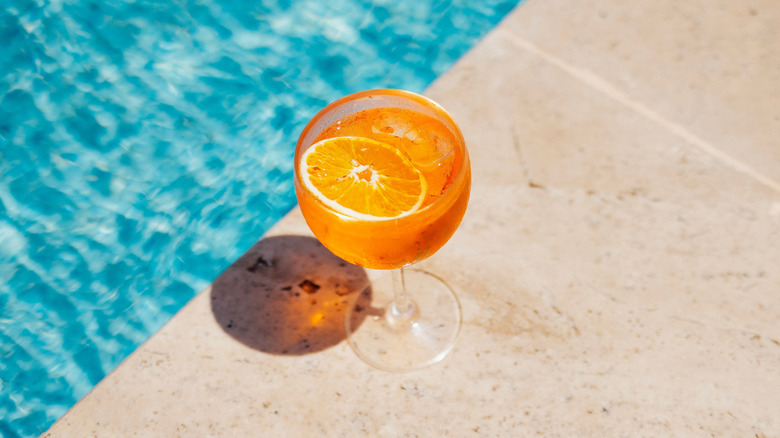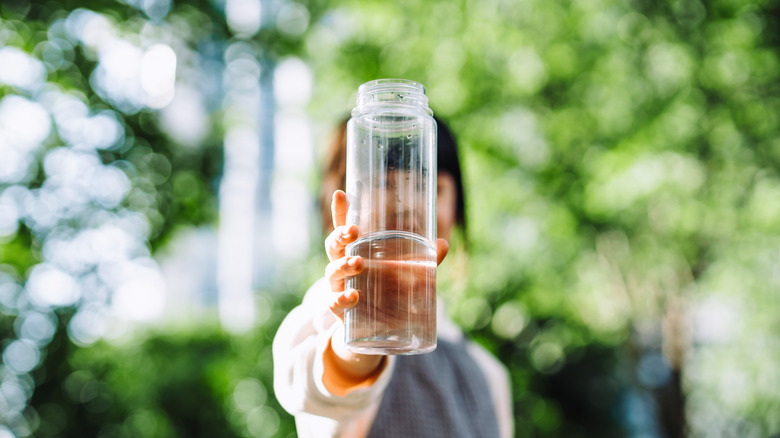Why You Should Avoid Drinking Alcohol During Extreme Heatwaves
When basking in the steamy summer sun, who doesn't love to sip on an icy, boozy summer beverage? Although many joyous summer activities involve an adult beverage or two, drinking too much alcohol in extreme or even typical summer conditions can be the ultimate buzzkill. Alcohol consumed in any climate causes dehydration, but drinking alcohol in a high-temperature environment dehydrates the body at a much faster rate. This can lead to an array of unpleasant symptoms, including dizziness and confusion, nausea, dry mouth, and motor impairment. In extreme cases, one may suffer from heat stroke if severely dehydrated, which produces similar yet more extreme symptoms such as fatigue, loss of consciousness, rapid heartbeat, and (rarely) hallucinations.
It's easy to attribute these symptoms to intoxication, as being under the influence produces similar effects. However, if you're soaking up the sun while sipping down a cocktail, these symptoms could very well signal dehydration. Some alcoholic drinks are more dehydrating than others. Typically, alcohol with a higher ABV (Alcohol By Volume) is more dehydrating than that with a lower ABV. As drinks like margaritas may seem refreshing — 42% agree it's the best summer cocktail — it's not as ideal for the summer sun as it appears due to its typical 20-30% ABV.
Don't panic and assume all of this should deter you from drinking alcohol in the summer heat — there are many ways to prevent dehydration even in the most aggressive heatwaves. The most effective way to counteract alcohol's dehydrating effects is to take steps to keep yourself hydrated. You can do this by drinking plenty of water throughout the day. Understanding what alcohol specifically does in the body can further prevent dehydration. In this scenario, ignorance is (literally) not bliss.
Understanding alcohol and preventing dehydration
Alcohol as a drug reduces the rate of antidiuretic hormone (ADH) produced in the body, resulting in frequent urination. This loss of fluid alone is dehydrating. Alcohol additionally weakens the Central Nervous System (CNS) and lowers blood pressure, ultimately increasing heart rate and prompting the body to sweat and lose more fluid. In extreme heat, where sweating is already common, alcohol consumption is especially dangerous.
This can all be aided through simple preventative measures. Drinking water filled with electrolytes, both before and after consuming a boozy beverage, is highly effective in preventing dehydration. Additionally, eating a hearty meal before consuming alcohol slows the rate of alcohol absorption. Many foods themselves are hydrating — watermelon is a perfect, refreshing summer treat that also has a high water content. Staying in shaded areas and wearing loose clothing can further prevent dehydration. If you are enjoying your cocktail in the sun, you should also try to alternate between time spent inside and outside.

